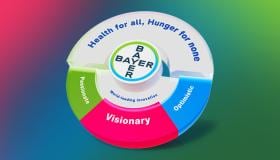Age

A person’s age is a quantity, and it details how many years they been alive. However, we often attach qualities to that number: expectations about their personality, understanding of technology or complex subjects, and so on. These characteristics are in fact independent from your age – so it’s better to describe them specifically and accurately, where relevant, rather than using age as a stereotype.
Is a person’s age actually relevant?
We may have become accustomed to reading about people’s ages in the news or in multimedia content. That can lead to an assumption that age is a key piece of information whenever we talk about a person. In fact, most of the time, age isn’t relevant. The easiest and most effective way to be respectful and inclusive of people of all ages is simply not to refer to age if you do not have to.
In some cases, age is clearly relevant (e.g. ‘We surveyed farmers aged over 45’ or ‘The event is open to under-18s’.) However, in many others, the reader won’t miss anything if age is not mentioned.
Common words to watch out for
There are some obvious age-based stereotypes that are easy to avoid. However, beyond this, even common phrases (such as ‘elderly’, ‘mature’ or ‘youths’) could carry unintended and possibly negative associations. It is preferable to use numeric definitions where possible, such as ‘people aged over 65’, to communicate meaning clearly and to avoid inviting stereotypes.
There are other broad terms that may not describe age equitably or inclusively:
Absolute terms: Though age is an absolute number, our social descriptions of it are often relative. If you need to describe a broad group, the relative ‘older people’ is preferable to the absolute ‘old people’. (‘Young people’ is still accepted as a term, but it is not a substitute for ‘children’ – adults can be young too.)
Education/employment: Significant moments in life such as finishing school, leaving education, entering employment, and retiring can all be described factually where relevant. However, these key moments can happen at different times for everyone, and it’s important to address people of all ages when describing these subjects.
Generations: Terms such as ‘Boomers’, ‘Millennials’, and ‘Generation Z’ are used regularly, especially when communicating online. Sometimes, calling out specific age groups can be necessary for recognizing different lived experiences and ensuring inclusion. However, at other times these categories are used as a shorthand for a set of stereotypes. Perhaps numerical and specific references (e.g. ‘people born between 1997 and 2012’) will serve you, and your colleagues and subjects, better.
If you have any further questions about this or any other section of Bayer Identity Net, please contact:





